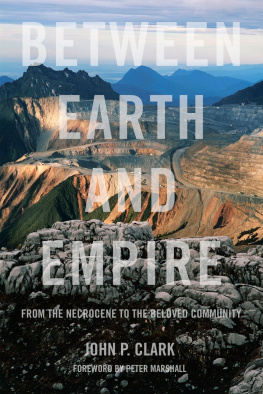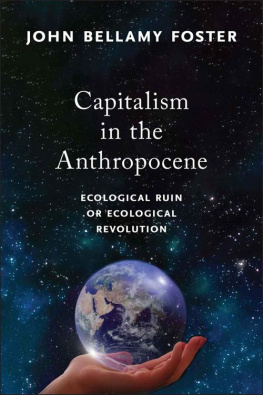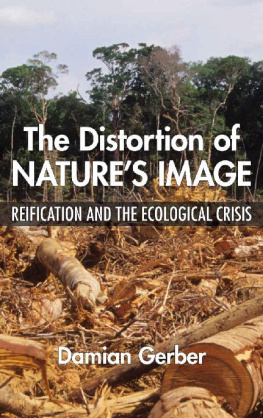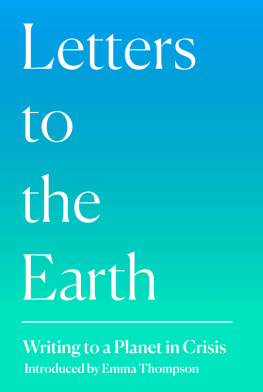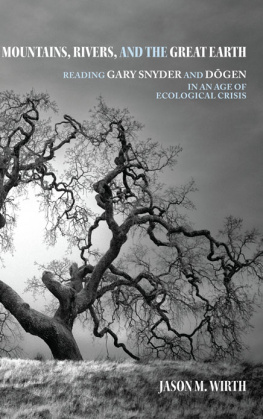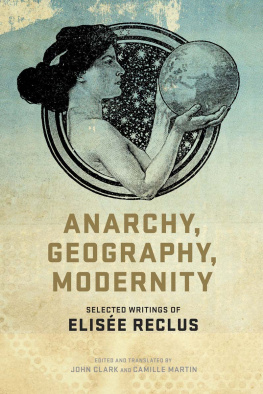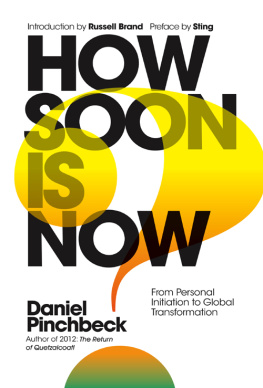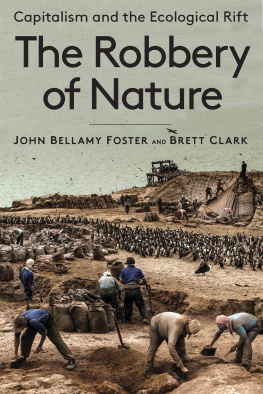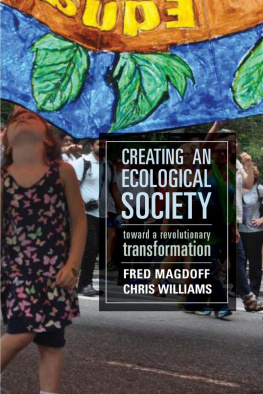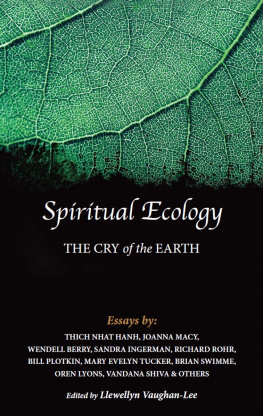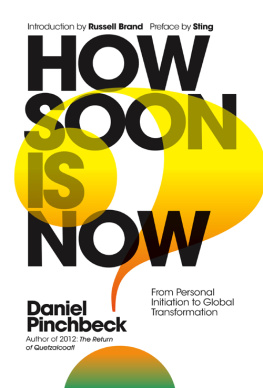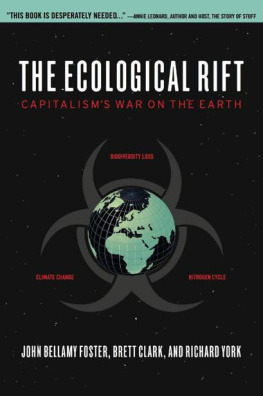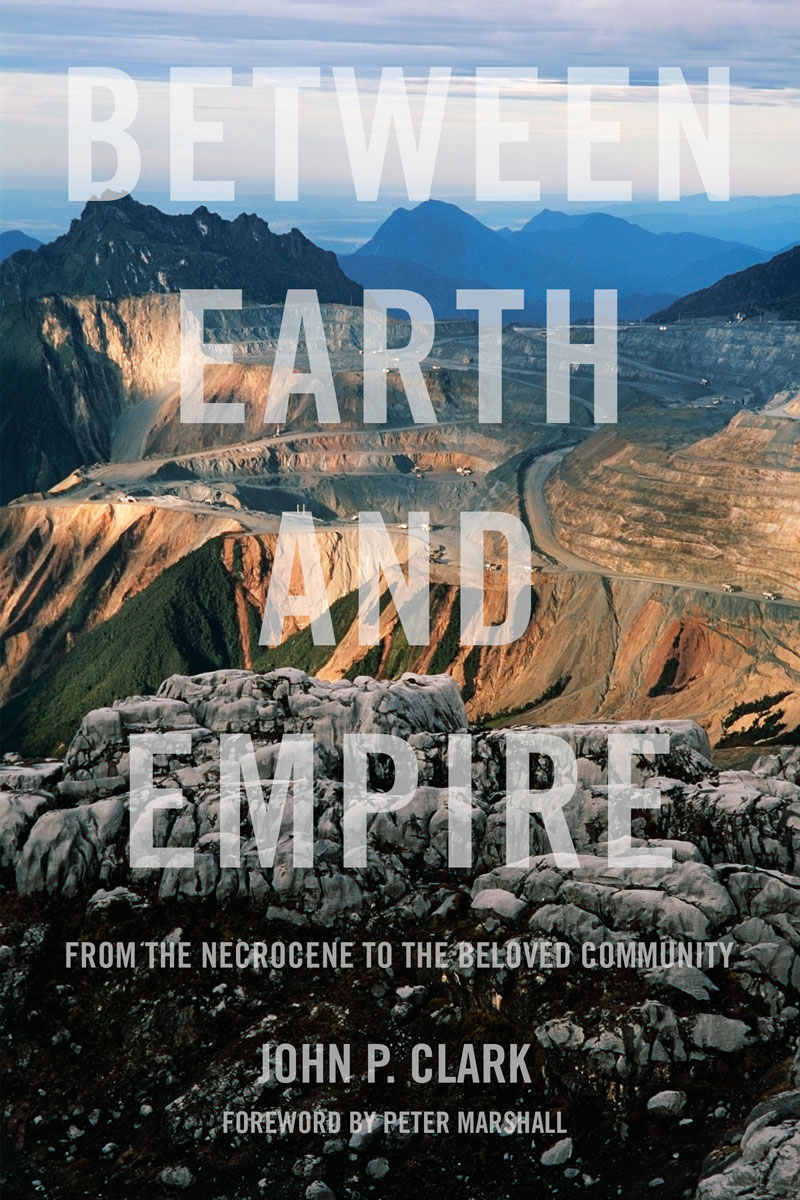
This book is a compass, polarized in the superlative subtropiques of the Gulf Coast, orienting cardinal points in the landscapes of the Zapatistas, the Black Panther Party, the Kurdish freedom movement, and West Papua. The diamantine dialectics of freedom breathing through the pages of this book will be a decisive factor in the final battles between earth and empire, between evolution and extinction. Which side are you on?
Quincy Saul, cofounder of Ecosocialist Horizons and editor of Maroon Comix
John Clarks book is a measured manifesto. It is a must read for any activist or scholar concerned with the alternatives to capitalisms ongoing war on nature.
Andrej Grubai, coauthor of Living at the Edges of Capitalism
Whether in Rojava, where women are fighting for their peoples survival, or in the loss and terror of New Orleans after the Katrina flood, Clark finds models of communality, care, and hope. Finely reasoned and integrative, tracing the dialectical play of institution and ethos, ideology and imaginary, this book will speak to philosophers and activists alike.
Ariel Salleh, author of Ecofeminism as Politics
Clark presents very sophisticated philosophical concepts in a style that is quite comprehensible to the general public. Each page sheds new light on our age of planetary turbulence and demolishes all pseudo-truths about it.
Ronald Creagh, author of American Utopias
John Clarks Between Earth and Empireis a guide to that which is obvious yet confoundingly obscurenamely, that models of social organization based in care and cooperation are infinitely more constructive and mutually beneficial than those based in competition and conquest.
Alyce Santoro, conceptual/sound artist and activist
Between Earth and Empire: From the Necrocene to the Beloved Community
John P. Clark
2019 PM Press.
All rights reserved. No part of this book may be transmitted by any means without permission in writing from the publisher.
ISBN: 9781629636481
Library of Congress Control Number: 2018949077
Cover by John Yates / www.stealworks.com
Interior design by briandesign
10 9 8 7 6 5 4 3 2 1
PM Press
PO Box 23912
Oakland, CA 94623
www.pmpress.org
Printed in the USA.
LA TERRE
Contents
Foreword
by Peter Marshall
This is a timely and relevant collection of essays and articles first published elsewhere, but it also contains new work, forming a coherent whole. The author John Clark is a sincere and authentic man, widely read and traveled, putting theory into practice, who offers in this compelling book his acute powers of analysis as well as the condensation of his lifes experiences, all written in a lively and accessible style.
It finds a source in the joy and the suffering of the author, in particular the catastrophe and devastation left by Hurricane Katrina in 2005 in New Orleans, where he dwells and where his family has lived for twelve generations. Not only was his daughters house destroyed, but also his son went missing. Since leaving university teaching, he has helped set up La Terre Institute for Community and Ecology, which works for social and ecological regeneration. Under different noms de plume, particularly that of Max Cafard, he has also been a Surrealist who has entertained and awakened the minds of his readers and changed their lives.
While being a bioregionalist who cares greatly for the city of New Orleans and Louisiana, he does not advocate a narrow localism and patriotic regionalism but would like society and the state to be turned into a community of communities, founded in a strong sense of place yet caring for the Earth as a whole. Indeed, human beings are embedded nature, not separate but an integral part of the Earth. Like most Americans, he has grown up and lived for most of his life in a society of advanced capitalism that is obsessed with mass consumption, self-image, egoistic individualism, and the immediate gratification of inflamed desires. It has a widespread belief that possession will bring happiness. Most of its population, searching endlessly for personal wealth and power, are ready to be led by charismatic or authoritarian leaders and to succumb to the technological megamachine.
He is rightly aghast at the disappearance of natural biodiversity and the coming of the sixth mass extinction. It would appear that we are entering not only the Anthropocene, a geological period during which human activity is the dominant influence on climate and environment, but the Necrocene, the Age of Death, in which Empire works inevitably against the Earth. There is clear evidence of a global ecological crisis, but political leaders and corporate managers fail to recognize it, let alone do anything. They blindfold themselves as they move toward the abyss of extinction, if not for themselves personally then for future generations.
Most already know the real dangers of climate change, ocean acidification, ozone depletion, the diminution of drinkable water, chemical pollution, and the destruction of ecosystems but do not wish to change their lifestyle radically. They are in a state of disavowal, if not of serious denial. The best that the global political class, for instance, could do at Paris was to make a voluntary agreement to try to limit climate change, demonstrating the optimism of shallow environmentalism, when a radical and immediate break with former habits is required in order to save the biosphere and life on this planet.
But Clark is not pessimistic. He argues for a reversal of the suicidal course of history. There is therefore a deep need to increase an awareness of biodiversity integrity and to overcome climate change, to address what humans are doing to the planet that supports them and other life. The walls of the school and university should give way to a liberating form of education involving the community and grassroots social movements. Only in this way can learning become a transformative experience to take off the shackles of illusion and cleanse, as William Blake said, the doors of perception. Certainly, this book contributes to that process.
Out of the present crisis there arises an alternative. Clark is heartened by the increasing awakening of consciousness and awareness. Another Sun is possible. Another world can be created, here and now, beneath our feet. Out of the disaster, both personal and social, he finds salvation in the Beloved Community based on an economy of the gift, mutual aid, and solidarity.
As a professor of philosophy and author, he is capable of abstract thinking and standing back and observing, well aware of past history and present dilemmas. At the same time, he is a deeply engaged thinker who participates in social and ecological experiments. He is deeply concerned about the condition of the oikos, our home, and uses both the logos, rational thought, and poesis, poetic thinking, to make his convincing case.
He lives on the edge in New Orleans, between land and sea, between North America and Latin America, Apocalypse and Survival, Heaven and Earth. He lives in a liminal city, on the threshold of the American Dream and the Corporate State. It is a city where the collective consciousness can erupt through the everyday reality of advanced capitalism, where grass can push up through concrete pavements, and the surrounding jungle can absorb the temporary buildings erected by humanity in the face of the unknown and mysterious. As the Mardi Gras shows, it rejects the Protestant ethic with its emphasis on hard work, sexual repression, and stiff upper lip, in favor of pleasure, play, sensuality, music, and dance. Where one stands like stone, the other flows like water. But the city shouldnt really be there, surrounded by swamps and marshes, built on sandy loam, in the delta of the mighty Mississippi River on the Gulf of Mexico.
Next page
